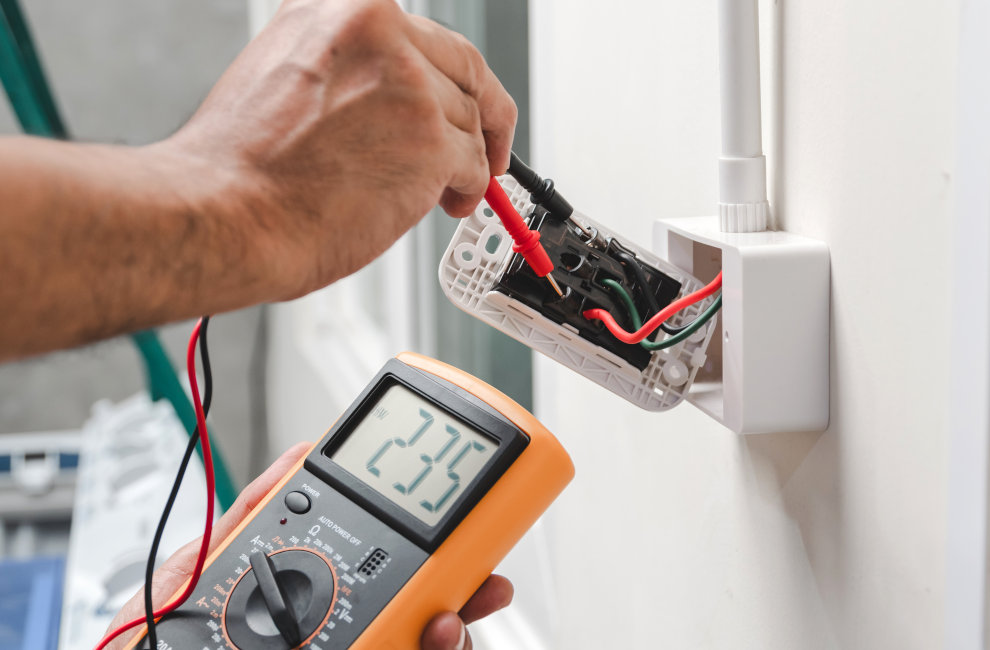Having an electrical safety certificate is a legal requirement for a landlord in the UK. Mainly in the interest of safety, the government asks that landlords regularly get their “fixed” electrical components inspected to check that everything is in working order.
With a number of other aspects of their property on a landlord’s mind, it can be easy to neglect this duty, but with potential financial penalties of up to £30,000, it is certainly something that needs attention and action. So why is it so important? How regularly do inspections need to be done and what standards need to be met? We’ve got it all covered in our guide to electrical certificates for landlords.
Why are electrical certificates so important?
Safety is one of the essentials when being a landlord of a property. Whether it’s through misuse or simple deterioration over time, electrics need checking as they will not last forever. Although you may not think it, electrical components can be one of the biggest concerns with regards to this safety if they are not regularly tested properly.
According to Electrical Safety First over 25% of all electrical fires in the UK are caused by faulty electrics. It is because of this that laws are in place for landlords to produce electrical certificates to prove that the electrical components of their properties are safe and in working order for their tenants.


How often does a certificate need to be produced?
An electrical certificate needs to be produced at least once every five years at a minimum. Checks can be carried out more often than this, but this is the absolute minimum that they will accept. As stated in the introduction, if this regularity isn’t met or the standard of the components aren’t up to scratch then fines of up to £30,000 can be imposed upon a landlord.
Finding a qualified tester
To obtain a certificate you’ll need to find a qualified and competent person to carry out the necessary checks to prove that your electrics are in good working order before producing a report. They should be a qualified electrician who is accredited by one of the associations that provides certifications. Examples of these would be the ECA, NICEIC and STROMA. Take into account their experience as they will need to be able to do more than just fit appliances. After reading this guide you’ll need to ask the right questions to check that they are the right person for the job before they begin the process.
These can be tricky to find so if you need any advice, Aspire to Move have the expertise and experience to offer our help where we can and provide contacts where necessary in this department.
What is tested and what happens during an inspection?
All that is required is the testing of the “fixed” electrical components of a property. The aspects that are a constant in the property and that will always need to be there. An inspection such as this will typically take 2-4 hours, although this depends on the size and history of the wiring in the property. Appliances will come and go, but the following parts are always there and need to be working:
- Fuse boxes
- Plug sockets
- Light fittings
- Wiring
- Permanently connected equipment (showers, extractor fans etc)
Although you should still regularly test appliances such as fridges and toasters, it is not a legal requirement to produce any sort of certificate for these. What we would say is that testing this can add a little bit extra to the peace of mind of your tenants, so it is always better to get these frequently checked too.
What needs to be done with the information
As mentioned before, your inspector should provide you with a report of the inspection and tests. If they are qualified and competent as the law requires then this shouldn’t be a problem. Part of this report must also include a planned date of the next inspection. Copies should be provided to the following people:
- Current tenants (within 28 days of inspection)
- Local housing authority (within seven days of their request)
- Future tenants upon arrival
- Prospective tenants (within 28 days of request)
- You (the landlord) as part of your records until next test
- Person who carried out inspection and test
If the report concludes that all components are working properly and safely then all you need to do is provide copies to the correct people and keep one for your records until the next inspection.
What standards need to be met?
You might be wondering what defines a working piece of electrical equipment. Do certain standards need to be met? In a word, yes. There are certain British Standards that need to be met which are outlined in the 18th edition of BS 7671 published by IET (The Institution of Engineering and Technology).
The precise details of these aren’t something that you should worry about, but the electrician conducting the tests in your property should know where standards are and be able to report whether yours meet them.
What can you do if standards aren’t met?
It isn’t the end of the world if you don’t meet the regulations. In fact, it is worth seeing it as a relief knowing that you could’ve been in a much worse situation had the problems not been spotted. Remedies are allowed to be made and a written confirmation of the repairs can be sent to the concerned parties in this situation. The only stipulation is the time frame you’ll have to produce it in. Any problems must be remedied within 28 days unless it is specified in the report that they should be fixed in a shorter time frame due to immediate safety concerns.
Once these repairs are made then a written confirmation of the remedies should be supplied to everyone who received a copy of the initial report, again within the 28-day window.
Electrical Safety Certificate costs
The cost of having an inspection from a professional who can then produce a Landlord Electrical Safety Report can range from as little as £100 to as much as £250. Of course this varies depending on the extent of the property, location and which electrician you elect to go with. If any repairs are required then the costs will obviously be greater.
For a three-bedroom house in the south of the UK, expect a house rewire cost to be in the region of £3500. A new fuse box is also a little pricey, estimated by Job Prices to be around £500. Regardless of these potential costs, they are nowhere near the cost of the penalty fees for not abiding by landlord electrical safety standards or producing a report.



















